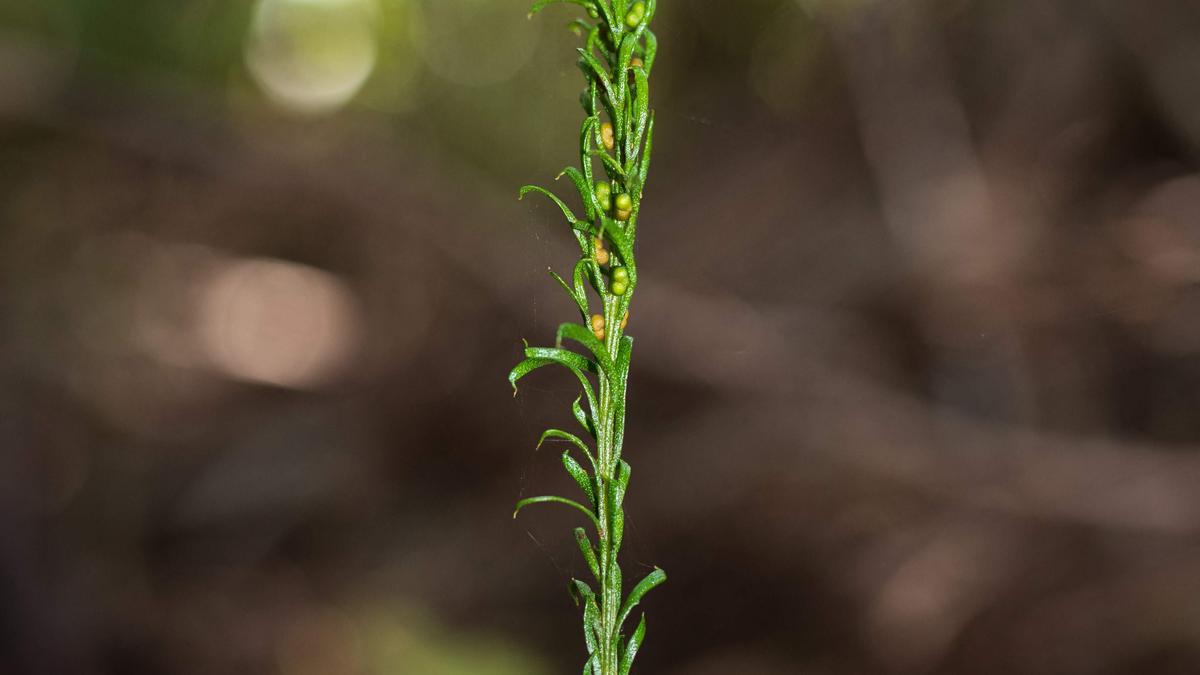
Humble fern from New Caledonia boasts world's largest genome
The Hindu
New research shows that fork fern species, called Tmesipteris oblanceolata, has a genome that is 7% larger than that of the previous record-holder
New research shows that a fork fern species, called Tmesipteris oblanceolata, has a genome — all the genetic information of an organism — that is 7% larger than that of the previous record-holder, the Japanese flowering plant Paris japonica, and more than 50 times the size of the human genome.
The metric for genome size was the number of base pairs, the fundamental units of DNA, in an organism's cellular nuclei. If stretched out like from a ball of yarn, the length of the DNA in each cell of this fern would extend nearly 350 feet (106 meters), taller than New York's Statue of Liberty, the clock tower for London's Big Ben or India's Taj Mahal. The human genome would extend a mere 6-1/2 feet (2 meters).
The fern grows primarily on the ground or atop fallen tree trunks in New Caledonia, about 750 miles (1,200 km) east of Australia, and on neighboring islands such as Vanuatu.
"We can tell you that this species is not very showy. It is a small plant, typically 10-15 centimeters (4-6 inches) in height, which could easily go unnoticed to anyone who's not specifically looking for it," said evolutionary biologist Jaume Pellicer of the Botanical Institute of Barcelona (IBB), co-lead author of the study published on Friday in the journal iScience.
The specimens used in the study were collected last year on New Caledonia's Grande Terre Island. Its leaf-like structures are not true leaves, but rather flattened stems. It belongs to a fern family whose evolutionary lineage split from other ferns around 350 million years ago, approximately 120 million years before dinosaurs appeared.
A large genome is not considered beneficial.
"We think that Tmesipteris oblanceolata has such a large genome not for any evolutionary advantage but simply because, for a reason that we do not know yet, it has failed over time to efficiently remove non-functional or redundant DNA sequences," Pellicer said.

The girl, who was admitted to Aster CMI Hospital with alarming breathlessness and significant pallor, was diagnosed with Wegener’s Granulomatosis (now known as Granulomatosis with Polyangiitis or GPA), a rare autoimmune condition that causes spontaneous bleeding in the lungs, leading to acute respiratory failure.

ACB files case against IPS officer N. Sanjay in Andhra Pradesh. The official is accused of manipulating the tender processes for awarding contract for development and maintenance of AGNI-NOC portal, and conducting awareness meetings for SC/STs. It is alleged that the total value of properties stolen, or involved in the case is estimated at ₹1,75,86,600.









